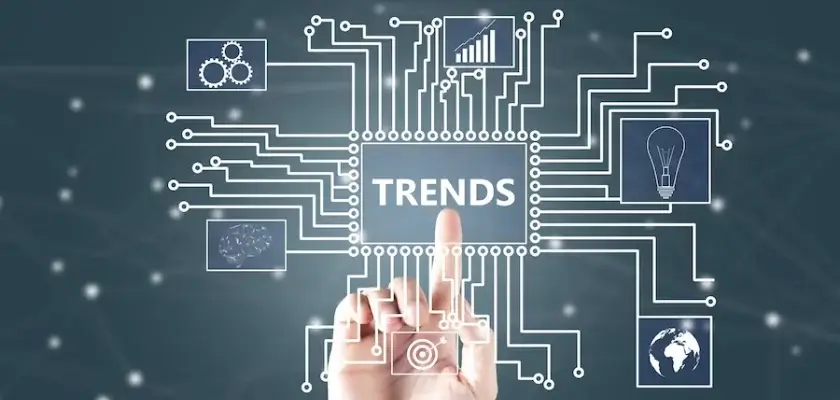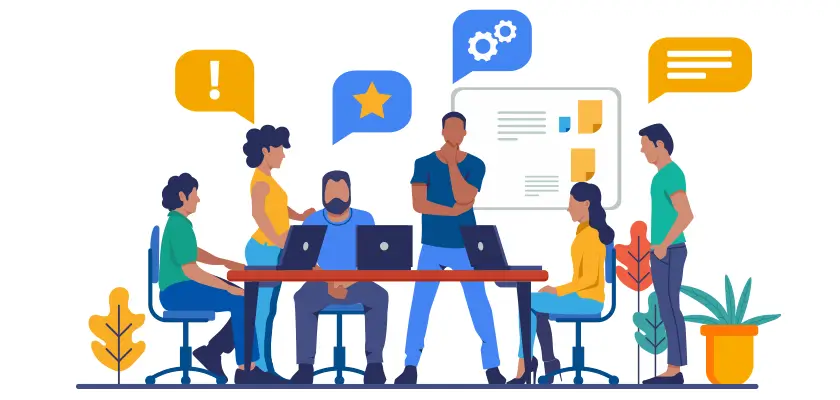

Information Technology services have been a significant part of the world economy for decades. However, as technology becomes more and more integrated into our lives, IT support services are becoming increasingly vital to many people's livelihoods.
This blog post will discuss some of the emerging trends that we're seeing in IT Professional Services. We hope that you'll find this information helpful in your business endeavors.
IT professional services are becoming increasingly automated - this means that IT solutions services providers need to be able to offer traditional IT Professional Services and solutions that use artificial intelligence and machine learning. This is a rapidly growing area in the IT industry with vast implications for how IT professionals can help their client's businesses grow.
The threat of cyber-attacks continues to loom over all companies, both large and small. Unfortunately, many people don't realize just how big impact cybersecurity has on our everyday lives. While it's impossible to prevent every single attack, there are some highly effective ways you can use to mitigate the risk so your business won't suffer too much damage should an incident occur.
Edge computing is a decentralized IT architecture that runs on the end user's device, such as personal computers and smartphones. Edge computing aims to keep data processing local instead of sending it all to an offsite cloud server. This will add speed and user experience while reducing latency (i.e., waiting time) for tasks like user searches or gaming requests.

Since its inception in 2006, Cloud has been considered one of the top emerging technology trends; however, with Microsoft's Azure Stack announcement at Ignite 2017, we think it's safe to say that this trend has emerged and won't be going anywhere anytime soon! Many benefits come from moving IT infrastructure into remote cloud locations. You can access the data at any time and any place independent of any hardware storage.
A mash-up of IT services is also emerging. This trend can change how IT operates and provides more flexibility for IT professionals than ever before. A mash-up involves combining two or more applications into one unified experience—a new product with a unique combination of features from different products. For example, you could create an application that combines Salesforce CRM with Twitter Analytics to monitor social media activity surrounding specific brands/products/hashtags, etc. The possibilities are endless! Mash-ups can be beneficial because they expand upon existing business value through increased efficiency, productivity, and added functionality.
Digital disruption has far-reaching effects on client organizations. It fundamentally changes expectations and behaviors in an organization's culture, market, industry, or process. If organizations aren't looking to respond to disruption, then they are looking to participate and, as a result, demand digital business services.
IT departments used to be the gatekeepers of IT projects, but now those roles are shifting. Business and IT leaders must work together for IT to remain relevant and useful in an increasingly digital world. This means that IT is no longer just about technology; it's also about business outcomes. Such as increasing revenue or reducing costs which require a new mindset throughout an organization.

The next generation needs different skill sets than their predecessors because they will need to move at the speed of change. Traditionalists may have been happy with service desk technicians who could solve basic problems quickly. At the same time, Baby Boomers might favor highly trained experts who can carry out complex deployment tasks after months or years.
IT buyers expect IT providers to deliver business outcomes in the form of innovative, efficient, and effective IT services.
This shift has created a new reality for IT service providers who must adapt their businesses models to align with this changing landscape or risk becoming obsolete. The IT industry is no longer dominated by vendors that provide technical support solutions but rather solution integrators that deliver complete IT lifecycle management capabilities across people, process and technology domains.
IT industry now is considering the be inclusive of everything. They preach diversity and equity while giving everyone a fair chance to be who they are.
Also, the IT industry will need to address security concerns like data breaches and vulnerabilities. This is because of the increasing number of attacks on IT infrastructure over the internet by hackers.
According to Gartner's 2018 CIO survey, "CIOs are expected to increase their spending on business-aligned outcomes in areas such as digital transformation initiatives including artificial intelligence (AI) platforms."
Hence there is an increased focus towards IT service providers which deliver complete IT lifecycle management capabilities across people, process and technology domains. New entrants have also entered this space with more efficient offerings that help businesses benefit from new technologies without any major disruptions or added costs along the way. The competition among solution providers has led them to become innovative
Share